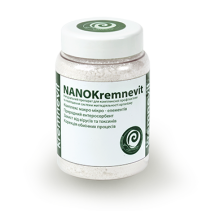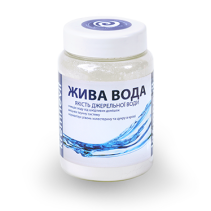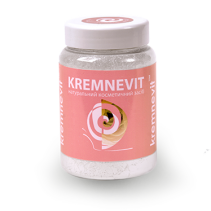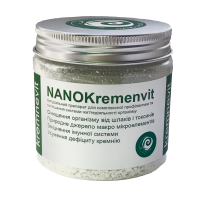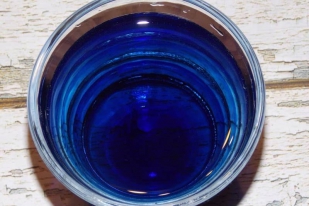Donald Davis, PhD, of the University of Texas at Austin....located "Senate Document 264" cited by Wallach as evidence that 99% of Americans are deficient in minerals. It turns out that the "document" is nothing more than the reprinting of a highly speculative article about a passing fad written by a Florida farmer in the June, 1936, issue of Cosmopolitan magazine as requested by Florida's Senator [Duncan U.] Fletcher [1859-1936]. Fletcher died 16 days after requesting that the government printing office reprint the article.*
Joel D. Wallach, the "mineral doctor"
Joel D. Wallach, M.S., D.V.M. (University of Missouri) and N.D. (National College of Naturopathic Medicine) is a veterinarian and naturopath who claims (in a widely distributed audio tape entitled "Dead Doctors Don't Lie") that all diseases are due to mineral deficiencies, that everyone who dies of natural causes dies because of mineral deficiencies, and that just about anyone can live more than one hundred years if they take daily supplements of colloidal minerals that--until he had a falling out with T.J. Clark & Co.--had to be harvested from pits in Utah.*
In the early 1980's, Wallach called himself a "Manner Metabolic Physician'' and treated cancer patients with laetrile, a substance that should not be used to treat cancer. In 1990 he also worked with Kurt Donsbach at the notorious Tijuana clinic Hospital Santa Monica. In 1995, Wallach was using chelation therapy for heart disease, a common misuse of this therapy by quacks. A relative of one of Wallach's patients reported his concerns to the National Council Against Health Fraud when the patient died in Wallach's care. The relative expressed concern that "Wallach had convinced the patient not to be treated by his regular physician; thus he did not seek proper medical help and died."*
There is no scientific data supporting the claim that all diseases are due to mineral deficiencies. A deficiency or excess of zinc can cause serious health problems. Iron deficiency is a well-known health problem. And there is a good reason for magnesium being a common ingredient in laxatives and antacids. But unless one has a specific deficiency, there is no known health benefit from ingesting daily supplements, colloidal or otherwise, unless one considers it a health benefit to feel that you are in control of your well-being by taking supplements. Numerous studies have failed to find any health benefit from taking supplements "just in case" you might be deficient in one or more vitamins or minerals. Editors at the Annals of Internal Medicine put it this way:
Most supplements do not prevent chronic disease or death, their use is not justified, and they should be avoided.... After years of study and mostly disappointing results, enough is enough. What we've found time and again is that the supplements are not working… we don't need to go on studying them forever....most of the 53% of U.S. consumers who use supplements are wasting money, to the tune of $28 billion a year.*
Since one-third of U.S. adults take supplements despite the lack of scientific evidence in support of the practice, characters like Wallach have a large market of eager customers waiting to be told lies that make them feel they can control their health with minimal effort just by opening their mouths and their wallets. The only reputable scientific study I know of that found a "modest" reduction in the risk of cancer from taking daily supplements was published in the Journal of the American Medical Society in 2012. The study involved over 14,000 male physicians over four years. One group got daily multivitamin tabs, the other group got a placebo.
Wallach claims that minerals in foods and most supplements are "metallic" and not as effective as "plant-based" colloidal minerals, which is nonsense because colloidal minerals are also "metallic," i.e., contain trace amounts of aluminum and heavy metals. Being colloidal has more to do with the origin, size, and structure of the mineral particles that with their effectiveness. Being metallic is irrelevant. Wallach claims that metallic minerals (i.e., regular vitamins and minerals) are only 8-12% absorbable while colloidal minerals are 98% absorbable. No data support this claim; Wallach seems to have made it up.* (A colloid is "a substance that consists of particles dispersed throughout another substance which are too small for resolution with an ordinary light microscope but are incapable of passing through a semipermeable membrane." --Merriam-Webster)
Wallach learned all this from living on a farm, working with Marlin Perkins (of Mutual of Omaha's "Wild Kingdom" fame), doing necropsies on animals and humans, reading stories in National Geographic magazine, and reading the 1934 novel by James Hilton, The Lost Horizon. His own imagination seems to have provided much of his data. He certainly didn't learn any of it from science texts.
Wallach makes his claims about minerals despite the fact that in 1993 a research team from the Centers for Disease Control and Prevention in Atlanta, Georgia, reported the results of a 13-year study on 10,758 Americans which failed to find any mortality benefits from vitamin and mineral supplements. The study found that even though supplement users smoke and drink less than non-users, eat more fruits and vegetables than non-users, and are more affluent than non-users, they didn't live any longer than non-users. The study also found no benefit from taking vitamin and mineral supplements for smokers, heavy drinkers, or those with chronic diseases. In May 2006, a committee of physicians impaneled by the National Institutes of Health (NIH) announced that little information exists as to whether people should take supplements. The previous March the NIH noted that research suggests that vitamins and other supplements may do more harm than good, and that antioxidants are of little use.* Further research has found that vitamin supplements can even be deadly.* The simple fact is that there is no compelling scientific evidence that vitamin or mineral supplements beneficially affect the health or longevity of most people. Those suffering from a vitamin or mineral deficiency should take supplements, but there is no merit to Wallach's claim that most or all diseases are due to mineral deficiencies.
Wallach's basic appeal is to offer hope to people who fear or are mistrustful of medical doctors and scientific knowledge. He gives hope to those who want to live for a really long time. He gives hope to those who are diagnosed with diseases for which current medical knowledge has no cure. He gives hope to those who want to avoid getting a terminal disease. And he gives hope to those who want to be healthy but who do not want to diet or exercise. All we have to do is ingest a magic elixir of colloidal minerals and we'll be healthy. You can't just take your minerals in pill form, he warns us. You must take the colloidal variety in liquid form. Until he had a falling out with T.J. Clark & Co., this elixir had to come from special pits in Utah. After John H. Renner, M.D., President of the National Council Against Health Fraud, exposed the "distortions, bogus science, and outright lies" in Wallach's tape, T.J. Clark & Co. "severed its business relationship with him." Wallach then "revised his 'scientific' opinion and quickly moved on to find new partners."*
the audiotape
Wallach seems to be most famous for a widely circulated audiotape he calls "Dead Doctors Don't Lie." [It is also available in video tape and book form.] The label on the tape notes that Wallach was a Nobel Prize nominee. This is true, but meaningless. He was nominated for a Nobel Prize in medicine by the Association of Eclectic Physicians "for his notable and untiring work with deficiencies of the trace mineral selenium and its relationship to the congenital genesis of Cystic Fibrosis." The Association of Eclectic Physicians is a group of naturopaths founded in 1982 by Edward Alstat and Michael Ancharski. In his book Let's Play Doctor (co-authored with Ma Lan, M.D., M.S.) Wallach states that cystic fibrosis is preventable, is 100% curable in the early stages, can be managed very well in chronic cases, leading to a normal life expectancy (75 years). If these claims were true, he might have won the Prize. He didn't win, but he gave a lot of false hope to parents of children with cystic fibrosis. The fact is that Wallach's "research" on cystic fibrosis was, to put it kindly, incompetent. The "people he studied were self-selected, and not randomized; he did not follow an appropriate data-gathering protocol; his diagnoses were made with a questionnaire; and his report made claims about other data that were either unsupported or unreferenced."* In fact, cystic fibrosis is a genetic disorder that "causes the body to produce unusually thick, sticky mucus that:
Clogs the lungs and leads to life-threatening lung infections.
Obstructs the pancreas and stops natural enzymes from helping the body break down food and absorb vital nutrients."*
"Many people with the disease can now expect to live into their 30s, 40s and beyond,"* but not because of mineral supplements or thanks to anything Wallach did.
The basic danger of Wallach's theories is not that taking colloidal minerals will harm people or even that many people will be wasting their money on a product they do not need. Many of his claims are not backed up by scientific randomized control studies, but are anecdotal or fictional. The basic danger is that because he and other naturopaths exaggerate the role of minerals in good health, they may be totally ignored by the scientific community even if they happen to hit on some real connections between minerals and disease. Furthermore, there is the chance that legitimate scientific researchers may avoid this field for fear of being labeled a kook.
Wallach falsely claims that there are five cultures in the world that have average life spans of between 120 and 140 years: the Tibetans in Western China; the Hunzas in Eastern Pakistan; the Russian Georgians and the Armenians, the Abkhasians, and the Azerbaijanis. He also mentions the people of the Vilcabamba in Ecuador and those who live around Lake Titicaca in Peru and Bolivia. The secret of their longevity is "glacier milk" (water full of colloidal minerals). The basis for these claims seems to be Wallach's imagination.
The label on the "Dead Doctors Don't Lie" tape says "Learn why the average life span of an MD is only 58 years." On his tape, Dr. Wallach claims that "the average life span of an American is 75 years, but the average life span of an American doctor is only 58 years!" Maybe dead doctors don't lie, but this living one certainly does. According to Kevin Kenward of the American Medical Association: "Based on over 210,000 records of deceased physicians, our data indicate the average life-span of a physician is 70.8 years." One wonders where Dr. Wallach got his data. The only mention in his tape of data on physician deaths is in his description of a rather gruesome hobby of his: he collects obituaries of local physicians as he takes his mineral show from town to town.
On his tape, Wallach says
...what I did was go back to school and become a physician. I finally got a license to kill (laughter), and they allowed me to use everything I had learned in veterinary school about nutrition on my human patients. And to no surprise to me, it worked. I spent 12 years up in Portland, Oregon, in general practice, and it was very fascinating.
Wallach is not a physician, but an N.D., a doctor of naturopathy. It is unlikely that most of the people in his audiences know that naturopaths aren't really physicians and that there is a big difference between an M.D. and an N.D. He also claims he did hundreds of autopsies on humans while working as a veterinarian in St. Louis. How does a veterinarian get to do human autopsies?
Well, again, to make a long story short, over a period of some twelve years I did 17,500 autopsies on over 454 species of animals and 3,000 human beings who lived in close proximity to the zoos, and the thing I found out was this: every animal and every human being who dies of natural causes dies of a nutritional deficiency.
If he really did do all those autopsies and then concluded that every animal or human who dies of natural causes dies because of a nutritional deficiency, then he qualifies for the Ignoble or Ignoramus Prize. To accomplish his autopsy feat, he would have to have done six autopsies a day, working 5 days a week for 12 years, taking only a 2-week vacation each year. He was allegedly performing all these autopsies in addition to his other duties and presumably while he was writing essays and books as well.
an attack on doctors and a panegyric to minerals
Wallach's "Dead Doctors Don't Lie" tape is both an attack on the medical profession and a panegyric for minerals. The attack is vicious and mostly unwarranted, which weakens his credibility about the wonders of mineral supplements. He does not come across as an objective, impersonal scientist. He delights in ridiculing "Haavaad" University and cardiologists who die young from heart attacks, many of whom went into the field because of congenital heart defects. Wallach seems to ignore the importance of genetics in human diseases. He reverts to name-calling on several occasions, as well. Doctors, he says, routinely commit many practices that would be considered illegal in other fields. At one point he claims that the average M.D. makes over $200,000 a year in kickbacks. This ludicrous claim didn't even get a peep of skeptical bewilderment from his audience. [The tape is of a live recording of one of his shows.] He sounds like a bitter, rejected oddball who is getting even with the medical profession for ignoring him and his "research," much of which consists of studies on such things as "hair analysis," a common mark of the quack. His bitterness toward science-based medicine makes Wallach attractive to those with an axe to grind against the medical profession.
In addition to citing his many scientific studies and years of research--which have been duly ignored by the science-based medical community-- as proof that we need mineral supplements for good health, Wallach presents U.S. Senate document #264. This paper claims that U.S. soils are 85% depleted of essential minerals. This 1936 document was published long before any extensive studies of mineral depletion in our soil had been done. ("The USDA has been compiling nutritive data of foods since the late 1800’s and published the first data tables in 1896. The first extensive revision was in 1950 with the publication of Agriculture Handbook no. 8, which was subsequently revised in 1963, 1976, and 1990. The USDA Nutrient Database for Standard Reference (SR13, 1999) is the most current version of the food composition tables."*) The 85% number seems to have been pulled from thin air. Even so, there is truth in the statement that our soils have become depleted of minerals due to modern agricultural methods:
A landmark study on the topic by Donald Davis and his team of researchers from the University of Texas (UT) at Austin’s Department of Chemistry and Biochemistry was published in December 2004 in the Journal of the American College of Nutrition. They studied U.S. Department of Agriculture nutritional data from both 1950 and 1999 for 43 different vegetables and fruits, finding “reliable declines” in the amount of protein, calcium, phosphorus, iron, riboflavin (vitamin B2) and vitamin C over the past half century. Davis and his colleagues chalk up this declining nutritional content to the preponderance of agricultural practices designed to improve traits (size, growth rate, pest resistance) other than nutrition.
....There have likely been declines in other nutrients, too ... such as magnesium, zinc and vitamins B-6 and E, but they were not studied in 1950 and more research is needed to find out how much less we are getting of these key vitamins and minerals.*
Other studies have found similar results. According to the Organic Consumers Association:
A Kushi Institute analysis of nutrient data from 1975 to 1997 found that average calcium levels in 12 fresh vegetables dropped 27 percent; iron levels 37 percent; vitamin A levels 21 percent, and vitamin C levels 30 percent. A similar study of British nutrient data from 1930 to 1980, published in the British Food Journal, found that in 20 vegetables the average calcium content had declined 19 percent; iron 22 percent; and potassium 14 percent. Yet another study concluded that one would have to eat eight oranges today to derive the same amount of Vitamin A as our grandparents would have gotten from one.
On the other hand, an analysis of minerals in food crops in the U.S. from 1950-1999 by Lyne and Barak found "no real loss in the balance of mineral nutrition in food crops." They concluded that "Although it may be hypothesized that a decline in soil quality has led to an apparent decline in food nutrition, more controlled studies are needed to factor out the many variables associated with the food composition tables and this type of analysis."
John B. Marler and Jeanne R. Wallin of the Nutrition Security Institute argue that
Our food system is rapidly losing its ability to produce food with nutrient levels adequate to maintain the health of our families. There is no guarantee that the food produced and harvested meets nutritional standards needed to maintain good health. To change this threat to the health of our families and the families of the world an effective strategy to increase the nutritional values of our food and restore the minerals and organic material in our depleted our soils is needed.*
The Nutrition Security Institute describes itself as "A Non-Profit Organization engaged in research to restore the fertility of earth’s soils." The folks at NSI support what they call "biological farming," i.e., organic farming. That organic farming should replace conventional farming is also the view of such organizations as the International Federation of Organic Agriculture Movements (IFOAM) and the Soil Association. These groups promote the belief that pesticides and fertilizers are so harmful that they should be avoided unless they are "natural." This belief is contradicted by the vast majority of scientific studies that have been done on these subjects (Morris and Bate 1999; Taverne 2006; NCPA study). In my review of the literature comparing nutritional differences between fruits and vegetables grown using organic techniques versus conventional practices, I concluded:
I have to say that I am underwhelmed by the studies I have reviewed that claim to have found organic foods are more nourishing or healthy than conventional fruits and vegetables. At present, there is no strong body of scientific evidence that supports the contention that organic fruits and vegetables are superior to conventional produce. A best case scenario for the organic folks would be that to achieve the recommended nutrients from five helpings a day of fruits or vegetables you might have to eat four or five more conventionally grown strawberries or two or three more baby carrots to get the same amount of vitamins, minerals, or antioxidants as provided by organic fruits and vegetables. But I'm not sure the evidence supports even that weak position.
I would say, then, that Wallach is right about the depletion of minerals from our agricultural soil and that he is right not to claim that the answer to this depletion is organic farming and eating organic fruits and veggies. But is he right about the need for mineral supplements? It may be true that the fruits and vegetables being grown today don't have as much mineral content as those grown 100 years ago, but it doesn't follow from that fact, if it is a fact, that the vast majority of the population suffers from some sort of mineral deficiency. Most of us may still be getting a sufficient supply of minerals from our diets even though the food we eat contains less mineral content than the same foods would have 50 or 100 years ago. The evidence that soil depletion has caused massive and extensive health problems doesn't seem to exist. I know that defenders of organic farming are wont to claim such things as the following from the NSI:
Without adequate nutrition, especially minerals, research has shown that people develop chronic health conditions. More and more nutritional studies have linked many of today’s most prevalent, life threatening chromic [sic] diseases – diabetes, heart disease, stroke, obesity, high blood pressure, macular degeneration, bone loss, dementia to nutritional deficiencies. Research is finding simple nutrition may eradicate many of these common conditions as it has with scurvy, pellagra, beriberi and others. The simple truth may be that susceptibility to disease is linked to either toxicity or nutritional deficiency. Increasingly, scientific research has shown that the secret to life-long health is good nutrition.
No one should argue against good nutrition, but the evidence is not very strong that good nutrition requires eating only organic foods, taking mineral supplements, or subjecting oneself to meaningless detoxification procedures. While there is little need to require much scientific study to know that poor nutrition can lead to obesity, type II diabetes, and high blood pressure, the evidence is not very strong that diet alone will end heart disease, strokes, or dementia. Like Wallach, the organic food fanatics seem to give little attention to the role of genetics in human diseases.
According to Wallach, soil depletion means we can't get enough minerals from our foods, but soil depletion alone does not logically imply that we can't get enough minerals from diet alone without the need for supplements. He also claims:
...to live to be 100+ we need to consume 90 nutrients per day...60 minerals, 16 vitamins, 12 amino acids and 3 fatty acids...there are some 10 diseases associated with the lack of each of these 90 nutrients or potentially 900 diseases...the American Medical Association did a study in 1939 and came to the conclusion that it is no longer feasible to get all the vitamins we need from foods.
I'm not going to try to find a copy of whatever 1939 study Wallach has in mind, but in a study done in 2012 and published in the International Journal of Preventive Medicine, the authors reviewed the results of randomized studies on the health benefits of taking a daily multi-vitamin/mineral (MVM) supplement and found "that, for the majority of the population, there is no overall benefit from taking MVM supplements. Indeed, some studies have shown increased risk of cancers in relation to using certain vitamins."
why colloidal minerals?
Even if mineral supplements are needed by some people, why can't they buy them off the shelf at a local supermarket or drug store? Because they aren't "colloidal," says Wallach. He suggests at one point in his tape that minerals in pill form aren't absorbed at all; they just pass right through the body and out into the sewer lines. But why do our colloidal minerals have to come from a pit in Utah? [note: Wallach has backed off this claim after his dispute with the owners of the pit, as mentioned above.] Here is his explanation:
...the only place you can get these in the United States is from a prehistoric Valley in southern Utah that, according to geologists, seventy-five million years ago had sixty to seventy-two minerals in the walls and the floor of that valley, and those trees and the grasses in that valley and that forest took up all the metallic minerals and made colloidal minerals in their tissues. About that time there was a volcanic eruption which entombed that valley with a thin layer of mud and ash, not thick enough or heavy enough to crush or pressurize this into oil or coal. It was very dry in here, so it never became fossilized or petrified. Okay. Never became rock.
Today, if you put a shaft into this valley, it's still just dried hay. It's seventy-five million year old hay, according to geologists. You can still see the grass and the leaves and the twigs and the pine cones and the bark and so forth. And we grind this plant material up into a flour, very small, particle sized flour, just like a good wheat flour and for three to four weeks we soak it in filtered spring water and when it reaches a specific gravity of 3.0, it's very heavy, it has thirty-eight grams of this colloidal mineral in it per quart or liter and by actual analysis it has sixty colloidal minerals in it. This particular product has been on the market since 1926. It's the only nutritional product on the market that has a legal consent decree from a federal court and an approval from the U.S. Department of Health and Human Services to be harvested and sold as a nutritional supplement. Everybody else who has a vitamin, or mineral, or what not, just follows the labeling requirements of the FDA. This is the only one that, in fact, has a federal consent decree to do it, because it passed all their tests. It's the only one that has been put to this level of test because it works.
How do we know it works? Wallach guarantees it. Or your money back! Should you trust him? Why wouldn't you trust someone who tells stories about people in China who lived to be over 250 years old or about a 137-year-old cigar-smoking woman! Of course, it is up to you to infer that they lived so long because they took colloidal minerals, though the good naturopath/veterinarian has enough sense not to make such a claim. In case you are still not convinced of this man's trustworthiness, let me inform you that, according to Wallach, for the past twenty years there have been cures for arthritis, diabetes, and ulcers. These cures were discovered by veterinarians, who also discovered the cause of Alzheimer's disease years ago. Tell that to the millions of people suffering from these diseases.
Ellen Coleman, a registered dietician and nutrition columnist, has another view of Wallach's products: “Colloidal mineral products have not been proven safe or effective. They are not better absorbed than regular mineral supplements.” [Originally cited at the now defunct http://www.cruciblefitness.com/nutrition/bio.htm] James Pontolillo, a research scientist, is concerned that colloidal mineral products may contain toxic organic compounds.* The National Nutritional Food Association says that some colloidal mineral products “contain aluminum or toxic minerals; others are high in sodium. Some do not contain detectable amounts of minerals listed on their labels. Finally, there is no evidence that colloidal minerals are more bioavailable than those found in other forms.”*
Despite the many false claims Wallach makes about physicians, diseases, and mineral deficiencies, he has spawned a small industry of mineral sellers, including some multi-level marketing projects on the Internet.

